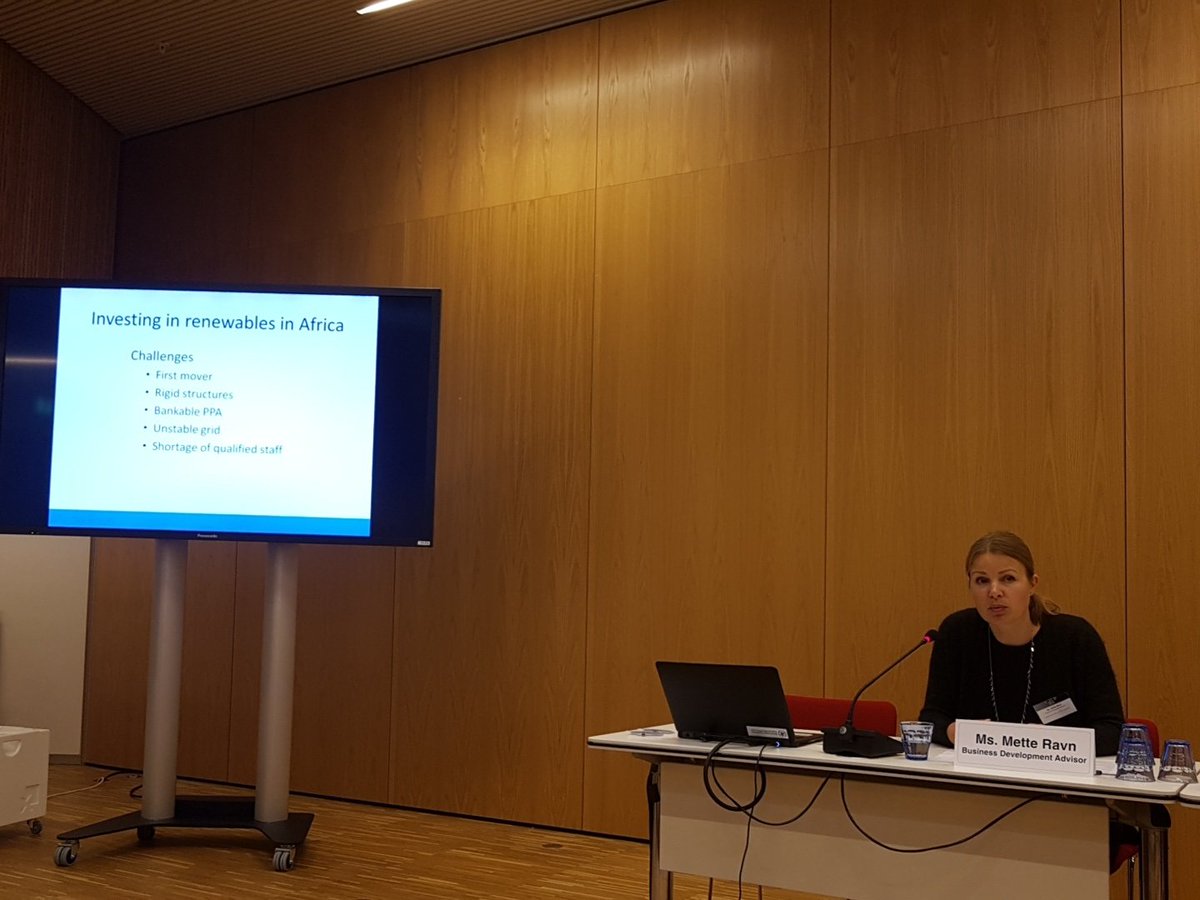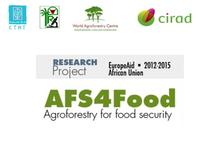7 September 2017. African Union Research Grants Success Stories
This leaflet highlights a number of success stories from the African Union Research Grants programme on Africa-Europe collaboration in research and innovation on food and nutrition security and sustainable agriculture. [Image credit: CAAST-Net Plus]
AFS 4 Food
Limit CBS Molecular techniques unlock clues to cassava disease control
This leaflet highlights a number of success stories from the African Union Research Grants programme on Africa-Europe collaboration in research and innovation on food and nutrition security and sustainable agriculture. [Image credit: CAAST-Net Plus]
This booklet provides a glimpse of a selection of the joint Africa-EU initiatives in FNSSA, sponsored by the first phase of the AURG. Although the projects featured here were approved before the FNSSA priority emerged, they have been conducted in the spirit of the Africa-EU partnership in STI and they are illustrative of just how effectively Africa and Europe collaborate to address our shared interests.
Project name Enhancing food security and well-being of rural African households through improved synergy between AgroForestry Systems and Food-crops
Coordinator Centre de coopération internationale en recherche agronomique pour le développement (CIRAD), France
Total cost €1,500,000 AURG contribution €748,500
Start / end April 2012 to October 2015
Participants Cameroon, Kenya, Madagascar
Aval Fonio Rediscovering neglected small grains
Project name Improvement of post-harvest and enhancement of fonio in Africa
Project name Improvement of post-harvest and enhancement of fonio in Africa
Coordinator Centre de coopération internationale en recherche agronomique pour le développement (CIRAD), France
Total cost €997,427 AURG contribution €749,466
Start / end December 2012 to June 2016
BIOVA Recycling nutrients
through conservation
agriculture
Project name Recyclage des Biomasses Végétales et Animales dans les systèmes d’agriculture élevage
Coordinator FIompiana Fambolena Malagasy NorvezianaFIFAMANOR, Madagascar
Total cost €973,578 AURG contribution €733,508
Start / end December 2012 to December 2016
Participants Belgium, France, Mozambique
INCIP Transforming indigenous
chicken production
Project name
Improving Indigenous Chicken
Productivity for Enhanced Livelihood
and Food Security in Sub-Saharan Africa
Web
http://incip.org/
Coordinator
Egerton University, Kenya
Total cost
€1,041,859
AURG contribution
€749,096
Start / end
March 2012 to September 2015
Participants
Malawi, The Netherlands
ITACA Intensifying tilapia
aquaculture
Project name Improved management and technological innovation in African tilapia farms and hatcheries
Web bit.ly/2vJIkN0
Coordinator National Institute of Oceanography and Fisheries, Egypt
Total cost €1,069,280 AURG contribution €748,496
Start / end January 2013 to December 2015
Participants Senegal, Spain
Limit CBS Molecular techniques unlock clues to cassava disease control
Project name
Limiting the impact of Cassava Brown
Streak Disease on smallholders, women
and the cassava value chain
Web LimitCBS
Coordinator
Natural Resources Institute, University
of Greenwich, United Kingdom
Total cost
€776,116
AURG contribution
€620,893
Start / end
December 2012 to March 2016
Participants
Tanzania, Kenya, Malawi
Project name
Validation and dissemination of bio
intensive eco-friendly management
strategies for thrips – a critical constraint
to cowpea production in Africa
Web
bit.ly/2wP2gQL
Coordinator
International Centre of Insect
Physiology and Ecology, Kenya
Total cost
€944,875
AURG contribution
€749,325
Start / end
March 2012 to March 2016
Participants
Kenya, The Netherlands, New Zealand,
Uganda, United Kingdom
Related:
 13 September 2017. Copenhagen. UNEP DTU Partnership hosted a public event to discuss how can tackle a range of global challenges, such as climate change, food security and public health.
13 September 2017. Copenhagen. UNEP DTU Partnership hosted a public event to discuss how can tackle a range of global challenges, such as climate change, food security and public health.
cooperation between Africa and EU organisations on Science, Technology and Innovation (STI)
The speakers included members of the CAAST Net Plus (CN+) consortium, funded by the European Commission:
Related:
27 September 2017. Brussels. Permanent Representation of Ireland to the European Union. Seminar to discuss the relevant research infrastructures and collaborations and examples of capacity building for achieving the Sustainable Development Goals and to examine the enabling policy and regulatory environment for enhancing science cooperation on a global level.
The seminar will also consider agriculture and food security, and how Africa and Europe can cooperate. Research and innovation are pivotal to realisation of the goals of Africa’s transformative agenda. Food security, nutrition and sustainable agriculture (FNSSA) was identified as the first priority by the EU-Africa High Level Policy Dialogue (HLPD) on Science, Technology and Innovation.
It is envisaged that the recommendations from the seminar will feed into a broad range of discussions at the AU-EU Summit ( Abidjan, Ivory Coast on 29-30 November 2017).
 13 September 2017. Copenhagen. UNEP DTU Partnership hosted a public event to discuss how can tackle a range of global challenges, such as climate change, food security and public health.
13 September 2017. Copenhagen. UNEP DTU Partnership hosted a public event to discuss how can tackle a range of global challenges, such as climate change, food security and public health.cooperation between Africa and EU organisations on Science, Technology and Innovation (STI)
The speakers included members of the CAAST Net Plus (CN+) consortium, funded by the European Commission:
- Vinny Pillay (Minister Counsellor, South African Mission to the European Union Department of Science and Technology)
- Andy Cherry (Association of Commonwealth Universities, UK)
- Benjamin Gyampoh (African Academy of Sciences)
- James Haselip (UNEP DTU Partnership, Denmark)
The book aims to convey the work of CN+ in a digestible format, but also with the purpose of filling the science and technology gap in the existing body of literature on Africa-Europe relations. It raises and answers questions on what the current vision for Africa-Europe cooperation is, how the regions cooperate and what is the way forward.
 Related
Related
31 August-1 September 2017. RINEA_STI annual consortium meeting in Helsinki. This meeting discussed the future activities for supporting #EU-#Africa #research cooperation.
 Related
Related31 August-1 September 2017. RINEA_STI annual consortium meeting in Helsinki. This meeting discussed the future activities for supporting #EU-#Africa #research cooperation.
In February 2017, more than 70 scientific
experts, programme owners and stakeholders from
Africa and Europe were brought together in Brussels
to identify joint research and innovation (R&I)
needs in sustainable energy, climate change and
capacity building, advancing on existing collaborative
initiatives. Experts identified different situations and
requirements on both sides, with heterogeneity in
national programmes and strategies, means and
disparities between urban and rural areas.
The next step ss to develop a ‘roadmap
agenda’ similar to the Roadmap towards a
jointly funded EU-Africa Research & Innovation
Partnership on FNSSA. The roadmap will be based
on the technical paper on Climate Change and
Sustainable Energy, and will result in the launch of
a new EU-Africa R&I Partnership on climate change
and sustainable energy, with a specific focus on
deployment, capacity building in energy efficiency,
renewable energy, and climate services .
27 September 2017. Brussels. Permanent Representation of Ireland to the European Union. Seminar to discuss the relevant research infrastructures and collaborations and examples of capacity building for achieving the Sustainable Development Goals and to examine the enabling policy and regulatory environment for enhancing science cooperation on a global level.
The seminar will also consider agriculture and food security, and how Africa and Europe can cooperate. Research and innovation are pivotal to realisation of the goals of Africa’s transformative agenda. Food security, nutrition and sustainable agriculture (FNSSA) was identified as the first priority by the EU-Africa High Level Policy Dialogue (HLPD) on Science, Technology and Innovation.
It is envisaged that the recommendations from the seminar will feed into a broad range of discussions at the AU-EU Summit ( Abidjan, Ivory Coast on 29-30 November 2017).


No comments:
Post a Comment